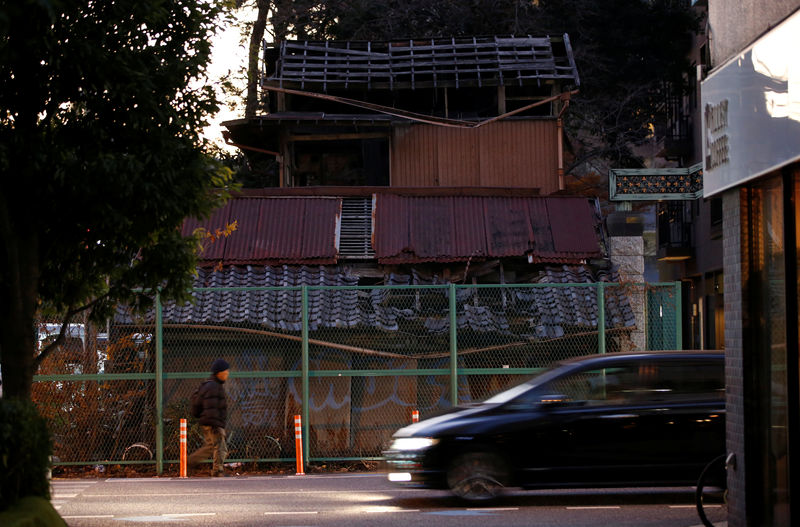By Hideyuki Sano
TOKYO (Reuters) - When Sparx Green Energy & Technology, a renewable energy firm, found an ideal plot of land on which to build a solar panel factory in Japan, there was a catch. The three people on public record as the owners of the land had died years ago.
What followed was a protracted search for the dead owners' descendents to find the legal heirs of the land, about the size of a football field. The company found that the number of people who could lay claim to the plot had mushroomed to more than a hundred.
At that point, the unit of Sparx Group, changed plans and looked for land elsewhere to avoid having to conduct separate, potentially expensive and time consuming, negotiations with so many people.
Registration of land ownership is not compulsory in Japan but the lack of up-to-date ownership records is an increasing problem. More than a tenth of the country's land mass, or an area the size of Holland, has no up to date record of ownership.
A research group at the National Land Planning Association estimates the problem will cost the economy 6 trillion yen ($53 billion) by 2040 based on the cost of maintaining abandoned land and the value the land could bring if it was put to productive use.
The government is responding. Earlier this month it said it plans to introduce legislation next year to make it easier for public works to be carried out on vacant land when it is difficult to determine ownership.
Such land plots were a major obstacle for reconstruction efforts after the 2011 tsunami and experts warn it could stifle any recovery efforts should Japan suffer another major natural disaster in the future.
"I believe we can inherit land in a real sense only by using it. If you can't tell who owns where in a country with limited land, it's as if you were abandoning the country's precious assets," said Takahide Taniwaki, president of Sparx Green Energy.
Many land owners do not bother to register because it is not mandatory.
Shoko Yoshihara, research fellow at the Tokyo Foundation who has written a book about the issue, said under current regulations there is no disadvantage for owners if they do not register their interest, while at the same time, there is a cost. Registration comes with at least a 0.4 percent tax on the value of the land, plus any legal or notary fees.
DEMOGRAPHIC TIPPING POINT
Until recently, the lack of accurate records of land ownership had attracted scant public attention.
But legal notaries, private sector researchers and local government officials say the problem of tracking down owners is only going to get more difficult as the baby boom generation die, often leaving several siblings and children.
Mass migration into big cities by the baby boom generation and their children during Japan's rapid industrialization, will also complicate efforts to track down descendents.
A pensioner in his sixties, who identifies himself as Y.K., said he came to learn recently from a note left by his aunt when she died that his parents owned land in a forest in Kyushu, Western Japan, about 1,000 kilometers (625 miles) away from his current home.
Although he initially wanted to report his inheritance he decided not to, he said, because doing so came at a cost and no benefit.
"I went there to check the land but the place seemed useless. It was even hard to tell exactly where it is because there was no picket or anything that shows the border. I asked a local real estate agent whether they wanted it but they said they didn't want it either," he said.
"I don't need it. I just wish the local government would take it," he said.
And while the issue has been seen as mostly confined to rural areas with low economic value, there are cases that are too late to untangle even in big cities.
A houseowner in the Tokyo suburb of Fuchu decided not to try to register as the owner of the house he lives in after he found that the registered owner was his great grandfather, who was born in the middle of the 19th century. That meant that now there were about 50 descendents who could claim ownership, said a legal notary, who requested anonymity to protect the confidentiality of his clients.
"If you are talking about 10 to 15 people having ownership, you can cope. But if you have 50 people having a claim, it's just impossible to get agreement from all of them," he said.

"Even though they are relatives on paper, they don't know each other. And I suspect most of them don't even know they have a piece of ownership," he said.